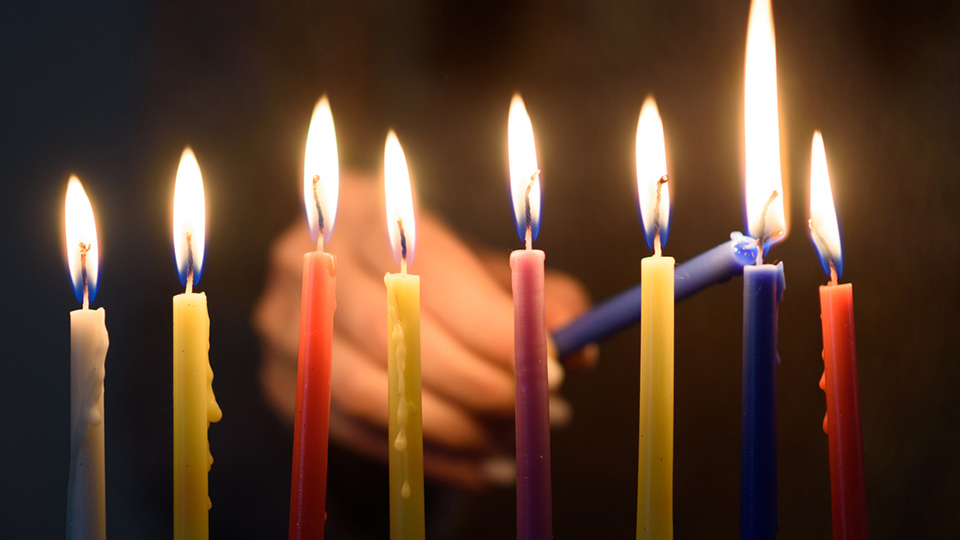
“Where’s your Christmas tree?” my children's friends ask.
“We’re Jewish,” I remind them.
“What are you doing for Christmas?” a teacher asks at their secular school.
“We’re Jewish,” I politely reply.
“Don’t you celebrate both?”
This is the question. Every year. Every. Single. Year.
Yet my response stays the same.
“Nope.”
I can’t discern if we are asked because my husband is Black, because my children are biracial, or because Christmas is so prevalent. Regardless, my response doesn’t deviate.
“We don’t celebrate Christmas.”
“But what about your husband?” a neighbor asks.
“What about my husband?” I reply.
“Well, doesn’t he celebrate Christmas?”
“Our family is Jewish.”
“But everyone celebrates Christmas,” I often hear.
“Nope, not everyone.” I reply with a grin.
The language I use with my children — ages 3, 7, and 9 — is consistent. While my husband’s maternal side is Baptist, and his grandfather is a deacon, our family is Jewish, and we do not consider ourselves interfaith. Yes, we are often called “an interfaith marriage” or “an interracial couple.” But that’s not the language we use. “Interfaith” and “interracial” are terms others use to refer to us, but it is not how we self-identify. My husband and I are aligned in our values and the language we use with our children.
“But what about Grandma? She celebrates Christmas,” my children asked when they were navigating their understanding. “Yes, we help grandma celebrate her holiday, and grandma helps us celebrate our holidays.”
I know it can be confusing to children, but I’m often baffled why this confuses adults, especially when my response is unwavering year after year. With children, I explain it this way: Imagine a friend's birthday is coming up. It’s not your birthday. You don’t get presents or blow out the candles because it’s not your birthday. However, you were invited, so you can help your friend celebrate their day. And we feel so lucky to be friends. It’s always nice to be included at a celebration, and we are gracious in helping others celebrate what’s special for them. That’s part of being a good friend. Another part of being a good friend is recognizing that our holidays and celebrations may not look the same.
We do help my husband's family celebrate their holiday with the understanding that we are helping them celebrate their holiday. I am cognizant of the language I use to provide clarity for my young children. For us, it works best that we pick a day other than Christmas Eve or Christmas day itself to get together. We bring presents because we want our extended family to feel supported. However, we don’t want the children to get all wrapped up in the whirlwind of focus on gifts, so we have them refrain from giving our kids presents. The kids have plenty of times throughout the year that they receive gifts. It’s easy for children to lean towards wanting to have a holiday that has gifts involved, and one that feels like everyone is celebrating. But this is also why in our house we don’t celebrate both; it’s a reminder that we do not have to do something just because it feels like everyone else is doing it.
Obviously, there is no one-size-fits-all. For some families it might be important to celebrate both heritages. Or neither. Our decision is what works best for our family. We encourage and support others in all the dynamic ways they decide to celebrate. But if someone asks us again this year, they will get the same answer as last time they asked: “No, we don’t celebrate both.”
About the Author, Jessica Keith
jessicakeithwriter.com
Jessica Keith is a professional lecturer at San Diego State University. When she's not busy saying, "don't make me repeat myself," to her young children, she is getting paid to discuss the diverse implications of repeating oneself, teaching Cross-Cultural Communication. Her memoir, 'Saying Inshallah with Chutzpah,' the experience of a Jewish woman working for a Muslim Government, is in the works.
PJ Library’s Hanukkah Hub
November 4, 2021